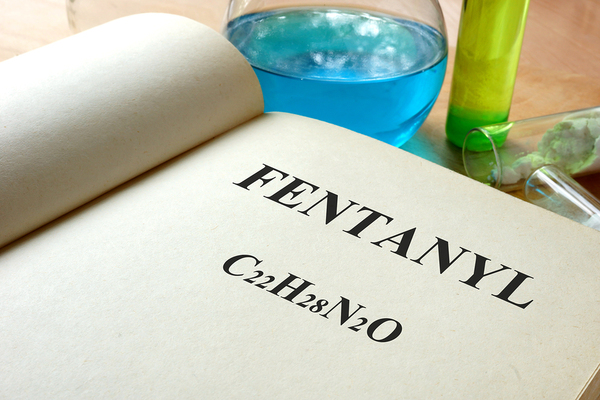This past spring, an airline pilot and his wife were discovered dead in their Ohio home. The cause of death, according to authorities, was fentanyl overdoses. Unfortunately, this was far from an isolated incident. In fact, fentanyl use is surging, as are deaths due to this pervasive and potent illegal drug. Here’s a closer look at fentanyl, the growing fentanyl epidemic throughout the U.S., and why it’s claiming so many victims.

Will someone you love overdose on fentanyl? Will you?
What is Fentanyl?
According to the National Institute on Drug Abuse (NIDA), “Fentanyl is a powerful synthetic opioid analgesic that is similar to morphine but is 50 to 100 times more potent.” Developed for clinical use to treat severe pain following surgery, it is also used in some cases to treat chronic pain.
While pharmaceutical fentanyl prescribed by a doctor is typically administered by injection, lozenge, or transdermal patch, non-pharmaceutical fentanyl is available in many forms, including as powder; on blotted paper; mixed in with (or substituted for heroin); or in tablet form. The risk of fentanyl overdose compounds when it is mixed with or mistaken for other drugs.
How Does Fentanyl Work?
Fentanyl binds to the body’s opioid receptors, located in the region of the brain that controls pain and emotions. This increases dopamine levels, leading to pronounced feelings of euphoria and relaxation.
Fentanyl also has a wide range of less desirable effects, including drowsiness, nausea, confusion, constipation, sedation, tolerance, addiction, respiratory depression and arrest, unconsciousness, coma, and death, according to NIDA.
The Fentanyl Epidemic Strikes St. Louis
While people all over the country are falling victim to this insidious drug, St. Louis is one example of a city in its clutches. According to St. Louis Public Radio, based on coroners’ reports, nearly half of drug overdoses in parts of St. Louis last year involved fentanyl. Said Brandon Costerison, a representative of the anti-addiction group NCADA’s local chapter, “If I can be blunt, it’s scary as hell. And we don’t really have anything to indicate it’s subsiding yet.”
In many cases, say experts, heroin addicts take fentanyl because they believe it’s heroin—a potentially lethal scenario given that inhaling even a few grains of the substance can lead to death. As St. Louis’s chief medical examiner Dr. Michael Graham explained to St. Louis Public Radio, “When you buy from a street corner drug dealer you have no earthly idea what you’re getting—either what drug you’re getting or how much. People take what they used to take, and it results in a massive overdose.”
Even worse? A new drug derived from fentanyl, carfentanil, is now on the scene, alarming law enforcement officials. It’s pretty intense—not only is it 100 times stronger than fentanyl, but just three micrograms of it can tranquilize an elephant. Sabora, Co-Founder of the Missouri Network for Opiate Reform and Recovery, told KSDK of this insidious drug, “The risk far outweighs the reward for an addict. The risk is certain death before you get high. So I want to get this information to active addicts out there, to make sure you’re not messing around with this stuff, because it’s not worth it.”

Drug rehab is about more than quitting—it’s about getting to the root of addictive behaviors.
Unfortunately, the sad reality is that despite these warnings—and in some cases because of these warnings and the promise of a powerful high—addicts are still turning to both fentanyl and carfentanil, and law enforcement is struggling to keep up with the problem. As a St. Louis coroner told St. Louis Public Radio, “You cannot arrest your way out of this problem. It has to be a total shift in the way we handle these opioids in America.”
Not only that, but because fentanyl is so strong, stopping “cold turkey” can be especially painful, therefore making users more vulnerable to relapse. Specialized drug rehab centers offering supervision throughout the detoxification process may be the best chance fentanyl addicts have of recovery.
We’re Here to Help
Contact us today to learn more about Harris House’s substance abuse programs for fentanyl users.







